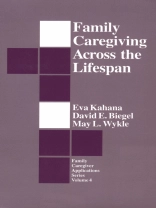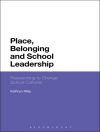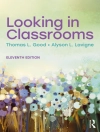Published in cooperation with the Center for Practice Innovations, Mandel School of Applied Social Sciences, Case Western Reserve University Increased life expectancy, the deinstitutionalization of persons with mental illness, the rise of home health care, and advances in medical technology have resulted in greater numbers of dependent people requiring care by family members. The frail elderly, the chronically mentally ill, and the physically disabled are examples of such groups who now receive their daily care in the community. How do families accept the burden of this care? What are the physical and emotional demands of such caregiving? Are the families prepared to assume this role? Family Caregiving Across the Lifespan considers the broad spectrum of chronic illnesses that necessitate family caregiving throughout the lifespan and expands the caregiving paradigm by including in its focus both members of the caregiving dyad and significant non-family caregivers. It also explores the social context in which care is provided–an entire section of the volume is devoted to discussions of the interface between informal and formal caregivers and society at large. Among the other subjects this volume addresses are the negative consequences of family caregiving, the value of providing support to caregivers, and caregivers of persons living with AIDS. Family Caregiving Across the Lifespan is important reading for those in social work, nursing, family medicine, and clinical psychology. ‘Family Caregiving Across the Lifespan represents a significant milestone in the continuing maturation of this vital area of long-term care. The title is an understatement of the authors′ accomplishments. . . .Rather than offering narrow boxes or labels, the book invites the reader to join in a broadened perspective on caregiving so that it can more fully reflect the richness of the lives of all involved. . . .For those who encounter Family Caregiving Across the Lifespan as part of their continuing study of caregiving, the book provides the integrating milestone of caregiving literature.’ –Journal of Case Management ‘This volume is a useful compendium of articles on family caregiving. The fourteen chapters in this volume address many important topics in family caregiving. One of the book′s major contributions is its clarification that family caregiving to frail or chronically ill people has no age limitation, although there are unique issues at different points in the development of individuals and families. The book has exceptional merit. It expands our understanding of family caregiving, provides important ideas for future research, offers research findings that enhance our understanding of family care, and presents a very useful review of the literature. This book would be a beneficial addition to the library of all researchers in the area of caregiving. They will discover worthwhile conceptualizations and gain new insights that can inform their research. Practitioners should also benefit from this collection. The chapters addressing interaction between forma land informal caregivers should give practitioners a deeper understanding of how to be more effective in dealing with informal caregivers and care recipients.’ -Ageing & Society ‘One paper [in this volume] deserves particular notice because it attempts to do what many of the authors feel is most critical in caregiving research but also most difficult, namely, to analyze the effectiveness of caregiving, the effect of provision of care on elder health outcomes. This is an important and original conceptualization of the problem…’ -Steven M. Albert, Contemporary Gerontology ‘This book is both unique and valuable because it embraces Brody′s observation that family caregiving is not limited to a specific segment of the life span. Moreover, the book is not limited to filial caregiving, but entertains an impressive variety of contexts of family caregiving. . . . This book will be a valuable text in graduate-level courses.’ –Journal of Marriage and the Family
Tabella dei contenuti
Introduction – Eva Kahana, David E Biegel, and May L Wykle
PART ONE: PARADIGMS FOR CAREGIVING
Developmental Challenges and Family Caregiving – Eva Kahana et al
Bridging Concepts and Research
Someone to Watch Over Me – Joan Aldous
Family Responsibilities and Their Realization Across Family Lives
Altruism Through the Life Course – Elizabeth Midlarsky
Optimal Use of Formal and Informal Systems Over the Life Course – Eugene Litwak, Dorothy Jones Jessop, and Heather J Moulton
PART TWO: ILLNESS AND LIFE STAGE: CHALLENGES FOR CAREGIVING
Caregiving and Children – Joan M Patterson and Barbara J Leonard
Caregivers of Persons Living With AIDS – Patricia Flatley Brennan and Shirley M Moore
Predictors of Caregiver Burden Among Support Group Members of Persons With Chronic Mental Illness – David E Biegel, Li-yu Song and Venkatesan Chakravarthy
Psychoeducational Programs – Catherine F Kane
From Blaming to Caring
The Home Care of a Patient With Cancer – Charles W Given and Barbara A Given
The Midlife Crisis
Caregiving Issues After a Heart Attack – Rosalie F Young and Eva Kahana
Perspectives on Elderly Patients and Their Families
PART THREE: THE INTERFACE BETWEEN FORMAL CARE PROVIDERS AND CAREGIVING FAMILIES
Care at Home – Lucy Rose Fischer and Nancy N Eustis
Family Caregivers and Home Care Workers
The Caregiver as the Hidden Patient – Jack H Medalie
Challenges for Medical Practice
Caregiving Issues in Families of Children With Chronic Medical Conditions – Anne E Kazak and Dimitri A Christakis
Relationships Between the Frail Elderly′s Informal and Formal Helpers – Linda S Noelker and David M Bass
Conclusion – Eva Kahana, David E Biegel, and May L Wykle












